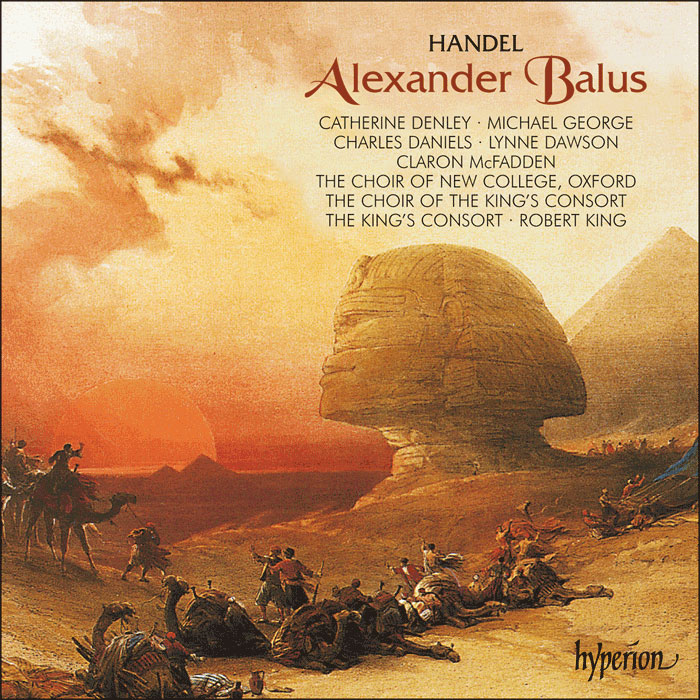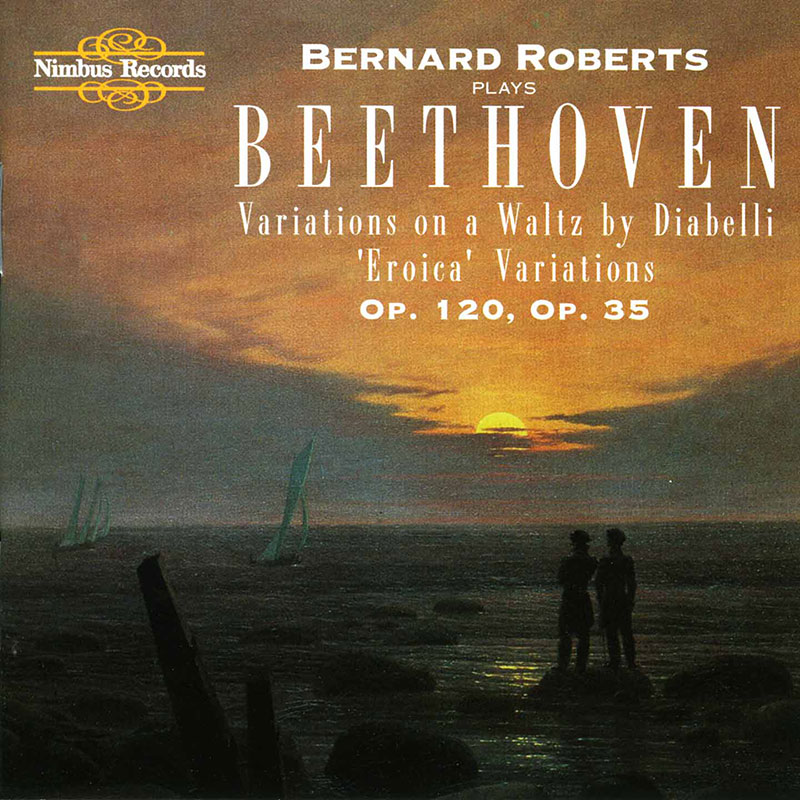Logowanie
OSTATNI taki wybór na świecie
Nancy Wilson, Peggy Lee, Bobby Darin, Julie London, Dinah Washington, Ella Fitzgerald, Lou Rawls
Diamond Voices of the Fifties - vol. 2
Tylko 1000 egzemplarzy!!!
DVORAK, BEETHOVEN, Boris Koutzen, Royal Classic Symphonica
Symfonie nr. 9 / Wellingtons Sieg Op.91
nowa seria: Nature and Music - nagranie w pełni analogowe
Petra Rosa, Eddie C.
Celebrating the art and spirit of music - vol. 3 - Pure
warm sophisticated voice...
Peggy Lee, Doris Day, Julie London, Dinah Shore, Dakota Station
Diamond Voices of the fifthies
Tylko 1000 egzemplarzy!!!
SAMPLER - STS DIGITAL, Buddy Tate, Milt Buckner, Walace Bishop
Jazz Masters - Legendary Jazz Recordings - v. 1
proszę pokazać mi drugą taką płytę na świecie!
Chesky! Niezmiennie perfekcyjny
Winylowy niezbędnik
ClearAudio
Double Matrix Professional - Sonic
najbardziej inteligentna i skuteczna pralka do płyt winylowych wszelkiego typu - całkowicie automatyczna
HANDEL, The King's Consort, Robert King
Alexander Balus
- Alexander Balus
- CD1
- 1 Act 1 Ouverture: [Grave] – Allegro [2:51]
- 2 Act 1 Scene 1 No 01. Chorus: Flush'd with conquest, fir'd by Mithra (Asiates) [3:11
- New College Choir Oxford, King's Consort Choir
- 3 Act 1 Scene 1 No 02. Recitative: Thus far, ye glorious partners of the war (Alexander/Jonathan) [1:28]
- Catherine Denley (contralto), Charles Daniels (tenor)
- 4 Act 1 Scene 1 No 03. Air: Great Author of this harmony (Jonathan) [3:17]
- Charles Daniels (tenor)
- 5 Act 1 Scene 1 No 04: Flourish of trumpets [0:11]
- 6 Act 1 Scene 1 No 05. Recitative: And thus let happy Egypt's king (Ptolomee) [0:24]
- Michael George (bass)
- 7 Act 1 Scene 1 No 06. Air: Thrice happy the monarch, whom nations content (Ptolomee) [3:43]
- Charles Daniels (tenor)
- 8 Act 1 Scene 1 No 07. Recitative: Congratulation to our father's friend (Cleopatra) [0:25]
- Lynne Dawson (soprano)
- 9 Act 1 Scene 1 No 08. Air: Hark! hark! he strikes the golden lyre (Cleopatra) [5:56]
- Lynne Dawson (soprano)
- 10 Act 1 Scene 1 No 09. Recitative: Be it my chief ambition there to rise (Alexander) [0:14]
- Catherine Denley (contralto)
- 11 Act 1 Scene 1 No 10. Air: Fair virtue shall charm me (Alexander) [2:24]
- Catherine Denley (contralto)
- 12 Act 1 Scene 1 No 11. Chorus: Ye happy nations round (Asiates) [3:01]
- New College Choir Oxford, King's Consort Choir
- 13 Act 1 Scene 2 No 1. Recitative: My Jonathan (Alexander) [0:35]
- Catherine Denley (contralto)
- 14 Act 1 Scene 2 No 2. Air: Oh, what resistless charms are giv'n (Alexander) [4:13]
- Catherine Denley (contralto)
- 15 Act 1 Scene 3 No 1. Air: Subtle love, with fancy viewing (Cleopatra) [4:55]
- Lynne Dawson (soprano)
- 16 Act 1 Scene 3 No 2. Recitative: Aspasia, I know not what to call (Cleopatra) [0:45]
- Lynne Dawson (soprano)
- 17 Act 1 Scene 3 No 3. Air: How happy should we mortals prove (Cleopatra) [2:26]
- Lynne Dawson (soprano)
- 18 Act 1 Scene 3 No 4. Recitative: Check not the pleasing accents of thy tongue (Aspasia) [0:25]
- Claron McFadden (soprano)
- 19 Act 1 Scene 3 No 5. Air: So shall the sweet attractive smile (Aspasia) [2:40]
- Claron McFadden (soprano)
- 20 Act 1 Scene 3 No 6. Recitative: How blissful state! (Cleopatra/Aspasia) [0:26]
- Lynne Dawson (soprano), Claron McFadden (soprano)
- 21 Act 1 Scene 3 No 7. Duet: O what pleasures, past expressing (Cleopatra/Aspasia) [3:00]
- Lynne Dawson (soprano), Claron McFadden (soprano)
- 22 Act 1 Scene 4 No 1. Recitative: Why hangs this heavy gloom upon the brow (Jonathan/Alexander) [1:00]
- Charles Daniels (tenor), Catherine Denley (contralto)
- 23 Act 1 Scene 4 No 2. Air: Heroes may boast their mighty deed (Alexander) [4:52]
- Catherine Denley (contralto)
- 24 Act 1 Scene 5 No 1. Recitative: Ye sons of Judah, with high festival (Jonathan) [0:31]
- Charles Daniels (tenor)
- 25 Act 1 Scene 5 No 2. Air with chorus: Great God, from whom all blessings spring (Jonathan/Israelites) [4:28]
- Charles Daniels (tenor), New College Choir Oxford, King's Consort Choir
- 26 Act 2 Scene 1 No 1. Air: Kind hope, thou universal friend (Alexander) [6:04]
- Catherine Denley (contralto)
- 27 Act 2 Scene 1 No 2. Recitative: Long, long and happy live the king! (Jonathan/Alexander) [0:40]
- Charles Daniels (tenor), Catherine Denley (contralto)
- 28 Act 2 Scene 1 No 3. Air: O Mithra, with thy brightest beams (Alexander) [4:17]
- Catherine Denley (contralto)
- 29 Act 2 Scene 1 No 4. Recitative: Stay, my dread sovereign (Sycophant courtier/Alexander/Jonathan) [1:39]
- Charles Pott (bass), Catherine Denley (contralto), Charles Daniels (tenor)
- 30 Act 2 Scene 1 No 5. Air: Mighty love now calls to arm (Alexander) [2:36]
- Catherine Denley (contralto)
- 31 Act 2 Scene 1 No 6. Air: Hateful man! thy sland'rous tongue (Jonathan) [4:20]
- Charles Daniels (tenor)
- CD2 1 Act 2 Scene 1 No 7. Chorus: O calumny, on virtue waiting (Israelites) [4:21]
- New College Choir Oxford, King's Consort Choir
- 2 Act 2 Scene 2 No 1. Recitative: Ah! whence these dire forebodings of the mind? (Cleopatra) [0:39]
- Lynne Dawson (soprano)
- 3 Act 2 Scene 2 No 2. Air: Tossed from thought to thought I rove (Cleopatra) [6:29]
- Lynne Dawson (soprano)
- 4 Act 2 Scene 2 No 3. Recitative: Give to the winds, fair princess, these vain doubts (Aspasia) [0:22]
- Claron McFadden (soprano)
- 5 Act 2 Scene 2 No 4. Air: Love, glory, ambition, whate'er can inspire (Aspasia) [2:50]
- Claron McFadden (soprano)
- 6 Act 2 Scene 3 No 1. Recitative: Thus far my wishes thrive (Ptolomee) [0:54]
- Michael George (bass)
- 7 Act 2 Scene 3 No 2. Air: Virtue, thou ideal name (Ptolomee) [3:43]
- Michael George (bass)
- 8 Act 2 Scene 4 No 1. Accompagnato: Ye happy people, with loud accents speak (Jonathan) [0:37]
- Charles Daniels (tenor)
- 9 Act 2 Scene 4 No 2. Soli with chorus: Triumph Hymen in the pair [2:40]
- Claron McFadden (soprano), Charles Humphries (countertenor), Charles Daniels (tenor), New College Choir Oxford, King's Consort Choir
- 10 Act 2 Scene 4 No 3. Recitative: Glad time, at length, hath reach'd the happy point (Alexander/Cleopatra) [0:48]
- Catherine Denley (contralto), Lynne Dawson (soprano)
- 11 Act 2 Scene 4 No 4. Duet: Hail wedded love, mysterious law! (Alexander/Cleopatra) [3:39]
- Catherine Denley (contralto), Lynne Dawson (soprano)
- 12 Act 2 Scene 4 No 5. Chorus: Hymen, fair Urania's son (Asiates) [2:27]
- New College Choir Oxford, King's Consort Choir
- 13 Act 3 Introduction: Sinfonia [1:15]
- 14 Act 3 Scene 1 No 1. Recitative: 'Tis true, instinctive nature seldom points (Cleopatra) [0:29]
- Lynne Dawson (soprano)
- 15 Act 3 Scene 1 No 2. Air with chorus: Here amid the shady woods (Cleopatra/Ruffians) [4:17]
- Lynne Dawson (soprano), New College Choir Oxford, King's Consort Choir
- 16 Act 3 Scene 2 No 1. Recitative: Ah! was it not my Cleopatra's voice? (Alexander) [0:41]
- Catherine Denley (contralto)
- 17 Act 3 Scene 2 No 2. Air: Pow'rful guardians of all nature (Alexander) [2:53]
- Catherine Denley (contralto)
- 18 Act 3 Scene 2 No 3. Recitative: Treach'ry, O king, unheard of treachery (Jonathan/Alexander/Aspasia) [1:23]
- Charles Daniels (tenor), Catherine Denley (contralto), Claron McFadden (soprano)
- 19 Act 3 Scene 2 No 4. Air: Fury, with red sparkling eyes (Alexander) [6:24]
- Catherine Denley (contralto)
- 20 Act 3 Scene 2 No 5. Recitative: Gods! can there be a more afflicting sight (Aspasia) [0:24]
- Claron McFadden (soprano)
- 21 Act 3 Scene 2 No 6. Air: Strange reverse of human fate (Aspasia) [2:50]
- Claron McFadden (soprano)
- 22 Act 3 Scene 2 No 7. Recitative: May he return with laurel'd victory (Jonathan) [0:26]
- Charles Daniels (tenor)
- 23 Act 3 Scene 2 No 8. Air: To God who made the radiant sun (Jonathan) [3:13]
- Charles Daniels (tenor)
- 24 Act 3 Scene 2 No 9. Chorus: Sun, moon, and stars, and all ye Host of Heav'n (Israelites) [2:51]
- New College Choir Oxford, King's Consort Choir
- 25 Act 3 Scene 3 No 1. Recitative: Yes he was false, my daughter, false to you (Jonathan/Cleopatra) [1:19]
- Charles Daniels (tenor), Lynne Dawson (soprano)
- 26 Act 3 Scene 3 No 2. Accompagnato: Ungrateful child, by ev'ry sacred pow'r (Ptolomee) [0:26]
- Michael George (bass)
- 27 Act 3 Scene 3 No 3. Air: O sword, and thou, all-daring hand (Ptolomee) [2:50]
- Michael George (bass)
- 28 Act 3 Scene 4 No 1. Accompagnato: Shall Cleopatra ever smile again? (Cleopatra) [0:43]
- Lynne Dawson (soprano)
- 29 Act 3 Scene 4 No 2. Recitative: Ungrateful tidings to the royal ear (Messenger) [1:23]
- Tom Raskin (tenor)
- 30 Act 3 Scene 4 No 3. Air: O take me from this hateful light (Cleopatra) [5:17]
- Lynne Dawson (soprano)
- 31 Act 3 Scene 4 No 4. Recitative: Forgive, O queen, the messenger of ill! (Second messenger/Cleopatra) [1:23]
- Simon Birchall (bass), Lynne Dawson (soprano)
- 32 Act 3 Scene 4 No 5. Accompagnato: Calm thou my soul (Cleopatra) [0:47]
- Lynne Dawson (soprano)
- 33 Act 3 Scene 4 No 6. Air: Convery me to some peaceful shore (Cleopatra) [2:41]
- Lynne Dawson (soprano)
- 34 Act 3 Scene 5 No 1. Recitative: Mysterious are thy ways, O Providence! (Jonathan) [1:20]
- Charles Daniels (tenor)
- 35 Act 3 Scene 5 No 2. Chorus with solo: Ye servants of th' eternal King (Jonathan/Israelites) [3:20]
- The King's Consort - orchestra
- Robert King - conductor
- HANDEL
AMERICAN HANDEL SOCIETY RECORDING PRIZE 1997 'This is a landmark in recording history ... Self-recommending, I think' (The Sunday Times) 'All Handelians will want this set' (Gramophone) 'An outstanding recording … an enthralling experience' (Choir & Organ) 'A winner … one of those experiences where you know almost from the first chord that an enjoyable and rewarding evening lies ahead of you. The cast is on top form' (Early Music) 'A very well sung and very welcome appearance of one of Handel's most rarely performed works … For her [Lynne Dawson] interpretation alone the recording is worth buying' (Classic CD) 'We may be grateful that yet another glory has been restored by Robert King and his accomplished forces' (The Times) 'King and his musicians approach the piece with vitality and affection and, in so doing, carried me along from start to finish' (BBC Music Magazine) 'Lynne Dawson y rayonne en princesse meurtrie; Catherine Denley trouve ice l'un de ses meilleurs emploie. Bel et bon orchestre, choeur impeccable. Pour quelques grands moments et tout un acte de béatitude, tendez les deux oreilles à Alexander Balus' (Diapason, France) 'The set deserves a warm welcome from all Handelians' (Hi Fi News) 'A landmark in discographic history. We must be grateful for so splendid a debut recording. All the soloists are excellent' (American Record Guide) ------------------------------ Alexander Balus brings to completion The King's Consort's series of Handel's four 'military' oratorios (the other three being Judas Maccabaeus, The Occasional Oratorio, and Joshua). The story is a somewhat embellished retelling of chapters 10 and 11 from the first book of the Apocryphal Maccabees and involves complicated intrigues between the Jews, Syrians and Egyptians in the second century BC. To cut a long story short, Alexander Balus, King of Syria, is eventually defeated in battle by Ptolomee of Egypt and then killed by an Arab; but Ptolomee himself dies just three days later allowing Jonathan, the Chief of the Jews, to remind us of the fate of those who do not believe in the One God. Musically, Handel is at his very best in this piece. Much of the composition occurred simultaneously with that for Joshua and there is, typically, a small amount of material recycled from earlier works. The Third Act, where Cleopatra is not only told (maliciously) by her father that her beloved Alexander has been faithless, but is also then informed of his death, sees some extraordinary aria-writing, at times reminiscent of 'Dido's Lament'.































.jpg)

